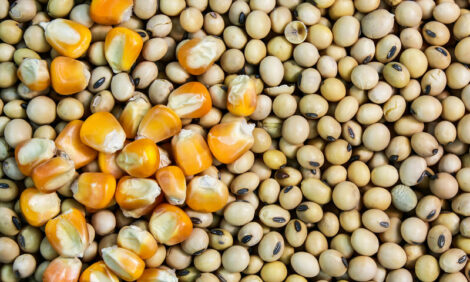



Rules For Interstate Meat Sales Need Flexibility
US - Federal rules proposed to allow small meat processors to sell their products across state lines miss the mark in some important ways, and need changes before becoming law, Secretary Rod Nilsestuen said in comments submitted to the US Department of Agriculture (USDA).“Wisconsin’s suggested changes better reflect the intent of the legislation to promote rural economic growth and provide more consumer choices for safe food in the marketplace. We are confident the rule changes we propose will create a workable program for everyone involved, and are grateful to USDA Deputy Secretary Kathleen Merrigan for her openness to state input on these rules,” said Secretary Nilsestuen, of the Department of Agriculture, Trade and Consumer Protection. The department’s Bureau of Meat Safety and Inspection licenses about 300 small local meat plants.
States can choose to license and inspect small slaughter and processing plants, rather than having the USDA regulate them, but products from those plants can be sold only in-state. Some Wisconsin plants, especially those near the Minnesota and Illinois borders, would like to be able to sell their products across state lines, and some would also like to be able to take advantage of internet sales to other states.
The 2008 Farm Bill passed by Congress repealed that prohibition, and directed the USDA to write rules to allow interstate sales of meat from state-inspected plants. Those rules were published for comment in September. Secretary Nilsestuen’s comments, developed with input from the Bureau of Meat Safety and Inspection, fell into five general areas:
- Inspection standards: As written, the rules seem to demand that small local plants be inspected in precisely the same way as large federally inspected plants that bring animals and products in from other states and even other nations and ship them nationwide. For example, such large plants may cover several city blocks and require an inspector present at each stage of the process. In a small plant, the entire process may take place in one room and only one inspector is needed. Rather, the standards for small plants need to protect food safety as effectively as those for large plants, but must be flexible and workable, Secretary Nilsestuen said.
- Mark of inspection: This stamp of approval is now different for state and federal plants, but the rules propose that state-inspected plants selling across state lines would be required to use a new federal mark. Many processors feel that the state mark of inspection gives them a marketing advantage, and using this mark along side the new mark should be allowed, Secretary Nilsestuen said in his comments.
- Number of employees: To be allowed to sell products out of state, state-inspected plants could average no more than 25 full-time employees, and never have more than 35 under the proposed rules. Secretary Nilsestuen believes this would unnecessarily restrict temporary, seasonal, and part-time hiring, as well as hiring for retail markets operated by many small meat processors.
- Transition grants: The Farm Bill included transitional grants to help small meat plants move into these new markets, but the proposed rules limit recipients to receiving reimbursement to train employees in a very narrow set of skills. Plants are already required to have employees trained in these skills, and may have greater need for other kinds of training, including sampling for microbes, Secretary Nilsestuen said.
- State cost reimbursement: The rules do not mention which additional costs incurred by state inspection programmes would be reimbursed by the USDA, which already shares the current costs of inspection with states. States need to know if they will be reimbursed and how much before deciding whether to participate, Secretary Nilsestuen said.
Wisconsin is one of 28 states with inspection programmes, and has more state-inspected meat plants than any other state. There are 299 state-inspected plants in Wisconsin and 145 federally inspected plants.
The prohibition on interstate sales was viewed as a limit to rural economic development, because it prevented small plants from expanding their businesses beyond their immediate community. This also risked their viability and, if they were unable to survive, would restrict livestock owners’ choices for slaughter services and consumers’ choices of products, concluded Secretary Nilsestuen.


